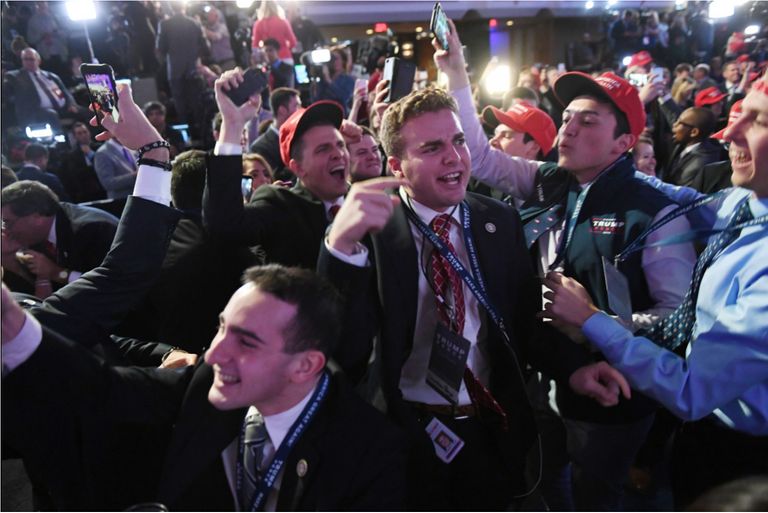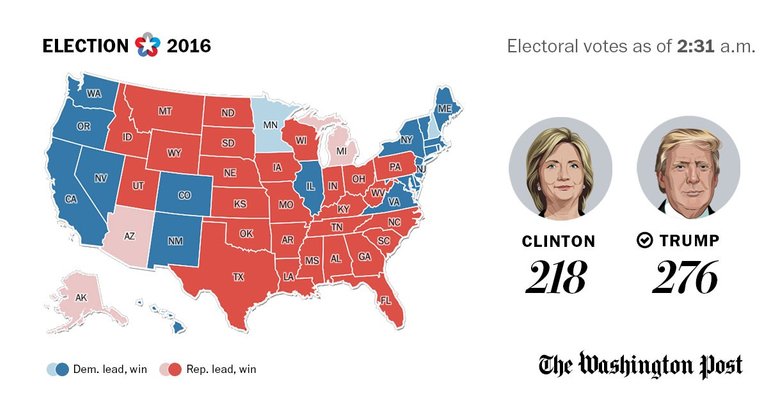Eight years prior, extraordinary throngs of Americans raced into the avenues amidst the night. Individuals cried, embraced outsiders, kissed cops, shared champagne. The nation had quite recently chosen its first black president, and it felt as though liberals and traditionalists, Republicans and Democrats, were on a similar group, if just for an animating minute, and that group had recently won the World Series.
Obviously, it rapidly turned out to be obvious that Barack Obama had won office in a partitioned country hungry for change additionally doubtful of power, suspicious of almost everything. Donald Trump's triumph Tuesday night appeared to be probably not going to incite any such bringing together surge of goodwill and pride.

Americans on race night of 2016 had the blues — anxious about the future, miffed about the lousy decisions they confronted, unreliable about the country's place on the planet, pestered by each other.
A presidential decision is an impression of the national culture and inclination, and if the Obama race was an announcement of positive thinking about the radical demographic, mechanical and social changes of late decades, then what did Americans' decision of Trump truly mean? It is, a few voters said, a confirmation of depletion, an aggregate settling for the lesser of two disasters in a nation where individuals progressively pick not to live close, connect with or listen to the individuals who hold restricting political perspectives. Not exactly, different voters said. With or without Trump's exceptional offer, Americans were resolved for the current year to send the government officials a message about the torment brought about by a decades-in length crumple of surenesses about what America resembles, what constitutes a family and how we gain a living.
Through customary news media and new online networking, an abnormally spellbound gathering of people saw this battle as a bewildering kaleidoscope of bloodcurdling resentment at rambunctious arouses, floods of examination and doubt, and downpours of affront exchanged by applicants and their supporters. Tuesday's vote left uncertain whether the revolting story of corrupt fanatic versus untrustworthy harridan truly mirrors a nation that has fallen into coarse, crude hatred — or if the 2016 crusade was rather a side effect of the recently unavoidable force of Facebook, Twitter and other online networking. The line amongst open and private obscured so completely that awful, terrible remarks that individuals once made just to their nearest relatives and companions were presently communicate to the world on the loose.
Trump is "like that specialist with the terrible bedside way," said Chris Love, 50, a Trump supporter and guns institute proprietor who was voting in Davie, Fla.
"He lets you know 90 percent of your supply routes are obstructed. By being obtuse, he's sparing your life."
Over the ideological separation, some observe the current year's surly, acrid crusade as an impression of suppositions that have been doubtlessly noticeable on the Internet for quite a while however that simply this year detonated into open expression.
"Dread and outrage and misogyny and xenophobia don't change — they were constantly out there, however now those individuals can locate each other quite a lot more effortlessly," said Chip Franklin, a radio anchor person in San Francisco who constructed his vocation as a moderate, then moved his governmental issues to one side. "The current year's outrage is the same as any year's outrage, yet what's diverse now is that there are 30 distinctive approaches to express that outrage and impart it to individuals who might never have seen it. At that point along came Donald Trump, willing to state whatever individuals needed him to state."

nice article